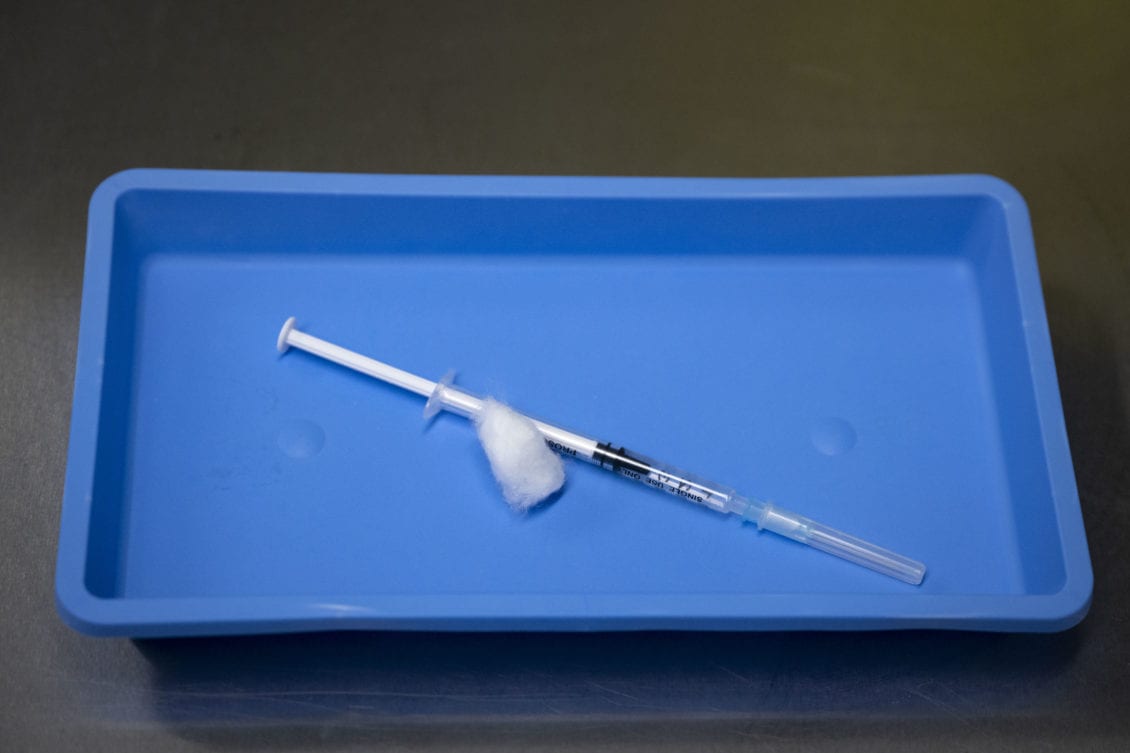People who are or have recently experienced homelessness in Wales are to be offered a Covid vaccination as part of priority group 6, Health Minister Vaughan Gething has confirmed.
The prioritisation comes as people who are or have recently experienced homelessness are confirmed to be classed as at increased risk. This is because they are more likely to have an underlying health condition which puts them at high risk from both transmission and the harms of coronavirus.
According to ONS data, people with experience of homelessness have a lower than average non-Covid related life expectancy, with mortality at around 31 to 38 years sooner than the general population.
Guidance issued today [Wednesday 10 March] outlines that an inclusive, blended approach should be taken to ensure all homeless people are included as part of the Welsh Government’s plans to guarantee no one is left behind, as Wales continues its vaccination programme.
People are currently identified and contacted via their GP or health records to be offered a vaccine however many homeless people may not be registered with health or other local services.
Local authorities, third sector and housing organisations, as well as homelessness support teams, will be key in helping to support individuals to take up their vaccine offer.
The vaccine will also be taken to where people are, rather than expecting them to visit services.
Those included are those sleeping rough, people in emergency accommodation and people recently homeless in supported accommodation.
Health Minister Vaughan Gething said:
“It is as shocking as it is saddening that those who are homeless are much more likely to have a physical or mental health conditions which put them at a higher risk from the harms of Covid-19.
“A fundamental principle of our vaccination programme is that no one will be left behind and as part of this commitment, we are already working to ensure it is as easy as possible for every eligible adult in Wales to have a coronavirus vaccine if they want one.
“Today’s guidance provides further information on how we are going to do this across organisations and government to ensure homeless people are supported to get protected and have their vaccine too.”
Minister for Housing and Local Government Julie James said:
“Today’s announcement means we will be able to protect some of the most vulnerable people in our society.
“Since the pandemic began housing teams and support workers in local authorities and the third sector have been working tirelessly to support people who are experiencing homelessness into safe, secure accommodation. Thousands have been helped and lives have undoubtedly been saved. These teams will now play an absolutely crucial role in helping us get the vaccine to where it’s most needed.
“By extending the offer of vaccination to people who are experiencing homelessness and, importantly, taking the vaccine to where those people are, we can ensure that no one is left behind.”
Cymorth Cymru Director Katie Dalton said:
“We are delighted that people experiencing homelessness are being prioritised for the COVID-19 vaccine in Wales. We have worked closely with the Welsh Government to evidence the particular risks to this population, and we are really pleased that Ministers have responded through the publication of this guidance.
“As well as the higher prevalence of underlying health conditions, we know that people experiencing homelessness are less likely to be registered with health services and could have missed out on the vaccine. The inclusive approach set out today means that public services and support providers are empowered to ensure that people sleeping rough and in emergency or supported accommodation are not forgotten and get the protection they need from COVID-19.”
Last year the Welsh Government announced £50 million to provide people with safe and secure homes, ensuring they do not fall into homelessness and no-one is forced back onto the streets.








Leave a Reply
View Comments